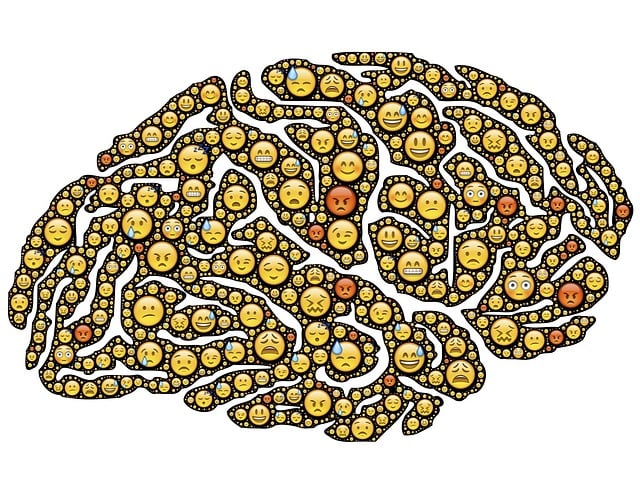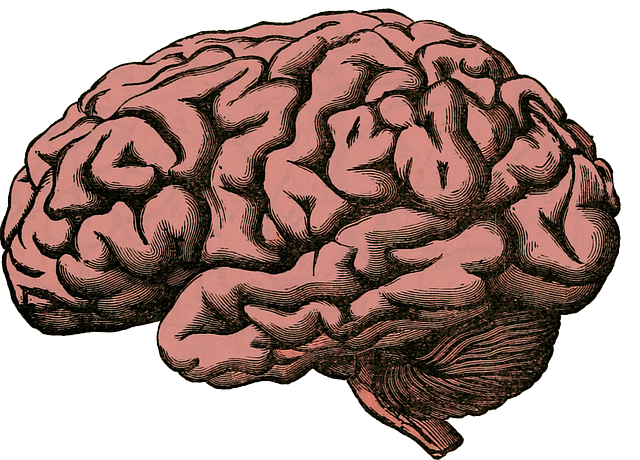The text emphasizes the importance of community outreach programs in addressing the unique challenges faced by the elderly population, including physical and cognitive changes, social isolation, and mental health issues. These programs offer crisis counseling therapy, conflict resolution, and stress management workshops tailored to elders' needs. By providing emotional support, wisdom sharing, and meaningful activities, these initiatives reduce anxiety and depression, empower seniors, and enhance their quality of life. Key aspects include integrating mindfulness and self-care practices, building resilience, and fostering social connections through ongoing mental health support and emotional intelligence training. Measuring success involves collecting data, preventing burnout, and promoting self-care among facilitators and volunteers.
Community outreach programs play a pivotal role in enhancing the well-being of the elderly, addressing their unique challenges and fostering a sense of belonging. This article delves into the multifaceted benefits of such initiatives, particularly focusing on crisis counseling within community settings. We explore strategies to support seniors, highlighting the power of collaboration with local organizations. Furthermore, it discusses evaluation methods to measure success and ensure continuity in providing essential therapy for elders’ crisis counseling needs.
- Understanding the Elderly Population and Their Challenges
- Benefits of Community Outreach Programs for Elders
- Strategies for Effective Crisis Counseling in Community Settings
- Building a Supportive Network: Collaboration with Local Organizations
- Measuring Success and Continuity: Evaluation and Future Planning
Understanding the Elderly Population and Their Challenges

The elderly population faces unique challenges that require tailored community outreach programs. As people age, they often experience physical and cognitive changes, social isolation, and mental health issues such as anxiety and depression. Many elders struggle with adapting to technological advancements, which can further exacerbate their feelings of disconnection from society. Understanding these barriers is crucial when designing outreach initiatives aimed at improving their well-being.
Implementing programs that offer therapy for elder crisis counseling, conflict resolution techniques, and stress management workshops can make a significant difference. These interventions not only provide emotional support but also empower seniors with tools to navigate daily challenges. By organizing such activities through community organizations, elders can foster social connections, reduce anxiety relief, and enhance their overall quality of life, ensuring they remain active and engaged members of society.
Benefits of Community Outreach Programs for Elders

Community outreach programs play a pivotal role in enhancing the lives of elders, offering them support and opportunities to thrive despite age-related challenges. These initiatives provide a unique chance to foster social connections, which is especially crucial for older adults facing potential isolation. Through regular interactions with community members, elders can receive emotional support, share their wisdom, and engage in meaningful activities. Such programs act as a lifeline, mitigating the risk of depression and anxiety—common issues among seniors, often exacerbated by loneliness and a lack of social engagement.
The benefits extend beyond social interaction; outreach programs incorporate therapeutic practices like compassion cultivation and mindfulness techniques to promote mental well-being. Crisis counseling sessions ensure elders have access to immediate support during difficult times. Moreover, these programs can facilitate social skills training and confidence-boosting activities, encouraging participants to adapt to changing circumstances and maintain a sense of self-worth.
Strategies for Effective Crisis Counseling in Community Settings

Implementing effective crisis counseling programs within community settings requires a tailored approach that addresses the unique needs of elderly individuals. One key strategy involves integrating self-care practices into the counseling process, empowering seniors to manage stress and maintain mental wellness independently. Counselors can teach simple yet powerful techniques such as mindfulness exercises, breathing strategies, and cognitive reframing skills to help elders cope with crises in their daily lives.
Additionally, developing Mental Wellness Coaching Programs tailored for older adults can significantly enhance crisis prevention efforts. These programs focus on building resilience, fostering social connections, and promoting active participation in community activities. By combining crisis counseling with ongoing mental health support, community outreach initiatives can effectively address acute crises and contribute to the long-term improvement of mental health policy analysis and advocacy, ensuring a more inclusive and supportive environment for elderly individuals.
Building a Supportive Network: Collaboration with Local Organizations

Building a supportive network is a key aspect of successful community outreach programs, especially when focusing on providing therapy for elders and crisis counseling. By collaborating with local organizations, such as senior centers, churches, or community health clinics, these initiatives can expand their reach and create a web of support. These partnerships facilitate access to resources, expertise, and a wider audience. For example, integrating mindfulness meditation sessions into existing programs can enhance emotional regulation skills among the elderly population, fostering a sense of calm and resilience in the face of challenges.
Emotional intelligence training for both counselors and community members can further strengthen this network. Such training encourages empathy and understanding, enabling more effective communication and support. By combining therapy services with educational workshops on emotional intelligence and mindfulness practices, organizations can empower individuals to navigate life’s crises with greater composure. This holistic approach not only addresses immediate needs but also fosters long-term emotional well-being, creating a supportive environment for all community members.
Measuring Success and Continuity: Evaluation and Future Planning

Measuring success is a vital step in any community outreach program, especially when addressing sensitive issues like elder crisis counseling. By evaluating the impact and effectiveness of these initiatives, organizations can ensure their efforts are making a tangible difference. This process involves collecting quantitative and qualitative data, such as participation rates, feedback from beneficiaries, and changes in mental health indicators. For example, tracking the number of elders receiving therapy and the frequency of crisis counseling sessions over time can demonstrate program success.
Moreover, evaluating these outreach programs should also consider long-term continuity. Planning for sustainability means integrating strategies to prevent burnout among facilitators and volunteers while fostering a culture of self-care practices. This could include producing a Mental Wellness Podcast Series to educate and inspire participants, ensuring ongoing support through regular check-ins, and implementing Self-Care Practices tailored to the community’s needs. Such measures contribute to a robust and enduring program that positively impacts the lives of elders in need of crisis counseling.
Implementing community outreach programs tailored to the elderly population offers numerous benefits, from enhancing their overall well-being to providing much-needed crisis counseling. By collaborating with local organizations and employing effective strategies, such as supportive network building and thorough evaluation, we can ensure these programs are not just temporary fixes but lasting solutions that significantly improve the lives of seniors. Incorporating therapy for elders’ crisis counseling into community initiatives fosters a more resilient and connected society, ultimately creating a supportive environment where the elderly feel valued and cared for.














